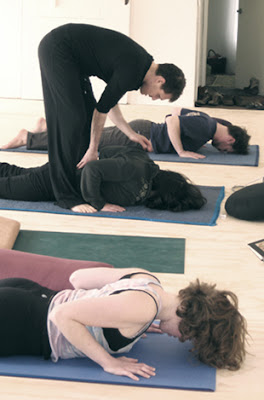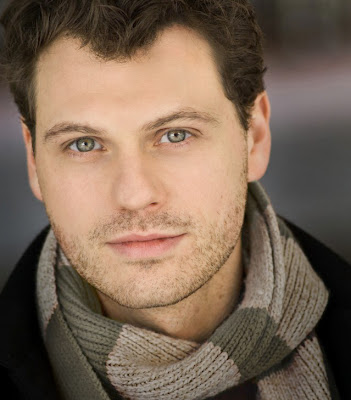I’ve just arrived in Toronto, after a week in Barcelona at the first international conference of Fitzmaurice Voicework.
Founder Catherine Fitzmaurice and Master Teacher Saul Kotzubei, about 15 Associate and Assistant Teachers (including myself), and around 40 workshop participants from all over the world gathered at the Barcelona Institut De Teatre. Sessions were taught in both English and Spanish, with smatterings of Catalan, French, Russian, German and Japanese bubbling up here and there as people worked.
In the evenings, there were performances which ranged from naturalism to stylized imagistic theatre, in voices that were sometimes simple and authentic, sometimes soaring, sometimes wild, animal-like song. Sometimes breath was the only voice... and the breath was itself a whole language.
Fitzmaurice Voicework is very much about allowing your own moment-to-moment experience -- your spontaneous individuality -- to be present in your voice, so that the listener feels connected to you when you speak.
Looking ahead to the weekend of teaching at the Volcano Conservatory, I find myself thinking a lot about the idea of community. Because it’s actually, in many ways, what the voice is for. We have this tiny organ in our throats that has the astonishing ability to translate what we are thinking, feeling and imagining through the air and into the bodies of people around us.
When we speak or sing, our bodies and the bodies of our listeners vibrate together, move in sync on a cellular level. And this shared vibration -- when it is allowed to be full of ourselves, our needs, our longings, our humour, our passions and our brilliance -- does something simple and remarkable: it helps us be less alone.
 |
| Noah Drew teaching Fitzmaurice Technique |
Oddly (and frustratingly), this can sometimes be especially true in performers. As we learn vocal skill (“good” singing sound, for instance, or “good” articulation), it can be so comforting to have a “correct” way of making sounds that we sometimes end up showing our skills rather than revealing our selves -- vocal training actually helps some of us hide more effectively. The result may well be a voice that is impressive. But without spontaneous honesty being allowed into the mix, that impressive voice rarely moves us.
 |
| Noah Drew |

Sounds like many of us- non performers could benefit from this!
ReplyDelete